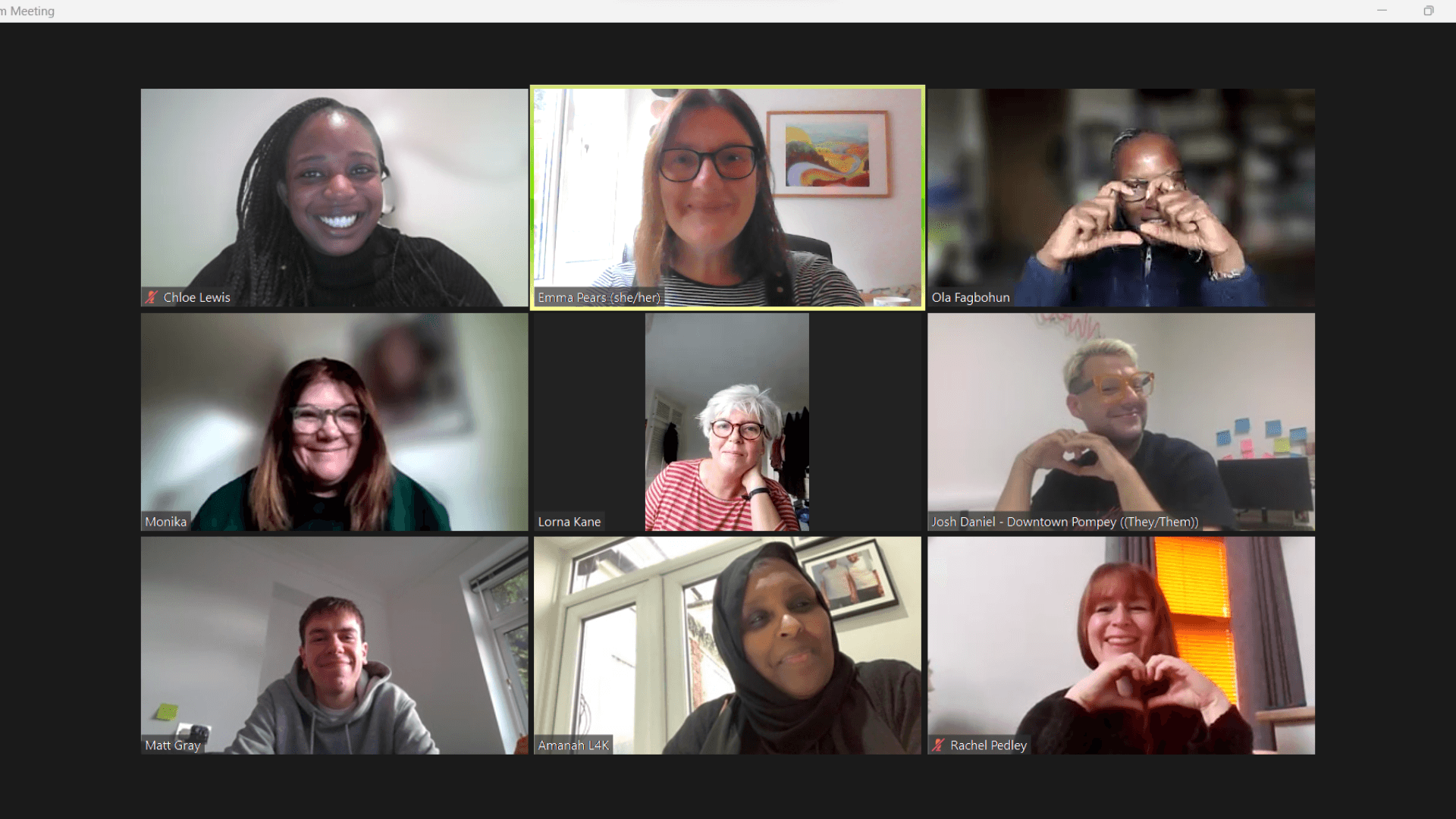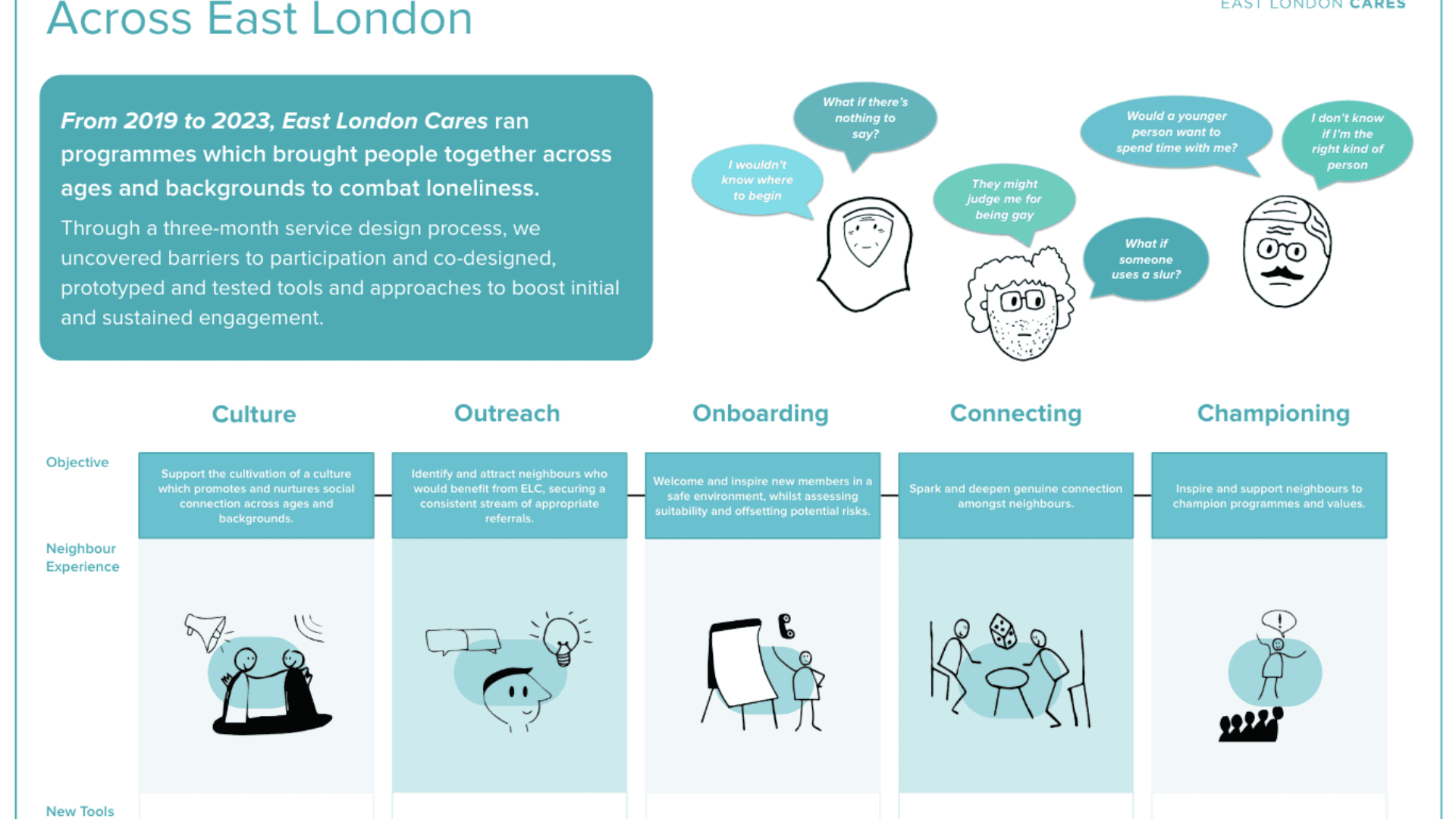
How social clubs in Manchester are building connection
Posted by The Cares Family on 25th October 2023
Please note: this post is 17 months old and The Cares Family is no longer operational. This post is shared for information only
The UK is experiencing a crisis of social disconnection. What do we mean by this? Three million people say they feel lonely often or always, with people aged 16-34 the most likely to feel this way. At the same time, younger and older people are becoming more geographically segregated, and similarly the number of people who say they feel they belong within their neighbourhood has decreased in recent years.
To put it simply, we’ve never been more lonely, divided or disconnected with the people and places around us. We know that it doesn’t have to be like this.
Our Social Clubs
To build more connection and community, our five local charities host regular social clubs: group activities that bring together people from different generations and backgrounds – or ‘neighbours’, as we call them – to share time, new experiences and friendship together.
In July and August, the Manchester Cares team and I piloted Learning Month. Over a four-week period, neighbours were encouraged to share stories and offer feedback about their experiences at social clubs through a range of activities. These included specially adapted social clubs, such as neighbours practicing creative writing by penning poems about Manchester Cares, or choosing songs to dance to that evoked how they feel at social clubs.
These different activities gave over 60 neighbours a variety of ways to contribute quantitative and qualitative data. Using this data, we were able to evaluate our social clubs in Manchester and gain a deeper understanding of the difference they make to the neighbours who take part.
Social clubs create a space for social connection
"Getting there may have been a trial,
And I've not been here for a while,
But I felt so much better when welcomed
With a brew and a smile.”
95% of neighbours reported feeling safe and included at social clubs. The qualitative data revealed how staff help to create a welcoming environment and facilitate activities that stimulate conversation and encourage neighbours to be open with each other. Even simple things, like sharing a hot drink and a biscuit, encourage neighbours to connect.
“The films and documentaries always generate a lively debate afterwards. With a nice hot brew and a biscuit, we chat to each other.”
As we outlined in our Building Connection: Exploring What Works report, creating meaningful connection requires a focus on creating safe and welcoming spaces – so people feel ready to be themselves.
Connection is more than company
“And the other thing about belonging to Manchester Cares – it makes you feel as though people care about you.”
80% of neighbours said they had made new friends at social clubs, and many neighbours commented on how social clubs gave them a chance to make meaningful connections – by meeting new people and seeing familiar faces.
“Social clubs have allowed me to show my care for others and to help people in need.”
Moreover, neighbours regularly described other neighbours and Manchester Cares as a “community” or “family”. Some neighbours highlighted that this group made them feel cared for; others that it gave them to chance to offer support to those around them.
“I’ve met new people outside of my usual circles”
Many neighbours commented on how the connections they made at social clubs were diverse – with people they wouldn’t have usually met or become friends with. 86% of neighbours also told us that they had a better understanding of people from a different generation or background to them after coming to social clubs.
“You don’t always have to get together for shared interests. Sometimes the beauty is to spend time with people who are different.”
As outlined in research on social connection, social connectedness and its health benefits stem from three different but related components: having multiple and diverse relationships; being able to call upon others for support; and the positive qualities relationships bring to our lives. The stories and feedback from neighbours suggest social clubs allow them to improve all three components.

Social clubs create positive emotions
“When I have a bad day, social clubs and my older neighbours always cheer me up.”
85% of neighbours said social clubs made them feel happier, and 78% of neighbours said they felt more confident as a result of coming to social clubs.
Similar sentiments were also found in the qualitative data, which linked these improved emotions to the welcoming environment at social clubs, the social connections people had made with other neighbours, or how the diverse age and background of neighbours challenged stereotypes.
“I will probably wake up tonight with a memory of my evening with friends of Manchester Cares.”
Another theme in the qualitative data was the number of neighbours who had gained positive memories from their shared experiences social clubs. These types of memories have been shown to improve positive emotions and reduce the effect of factors that impact one’s wellbeing. So, by savouring and sharing positive memories through storytelling, neighbours are likely to further support their wellbeing.
Creating meaningful connection elsewhere
Our social clubs show that it’s possible to create spaces in which people feel comfortable, widen their social networks and have others to rely on – or in other words, spaces where people can find connection and community.
That’s why we’re hopeful the crisis of social disconnection can be overcome, and why we believe it’s a priority to support others to create meaningful connection where they live.
Our recently published manifesto also sets out five key policy recommendations to strengthen social connection across UK. Find out more here.


